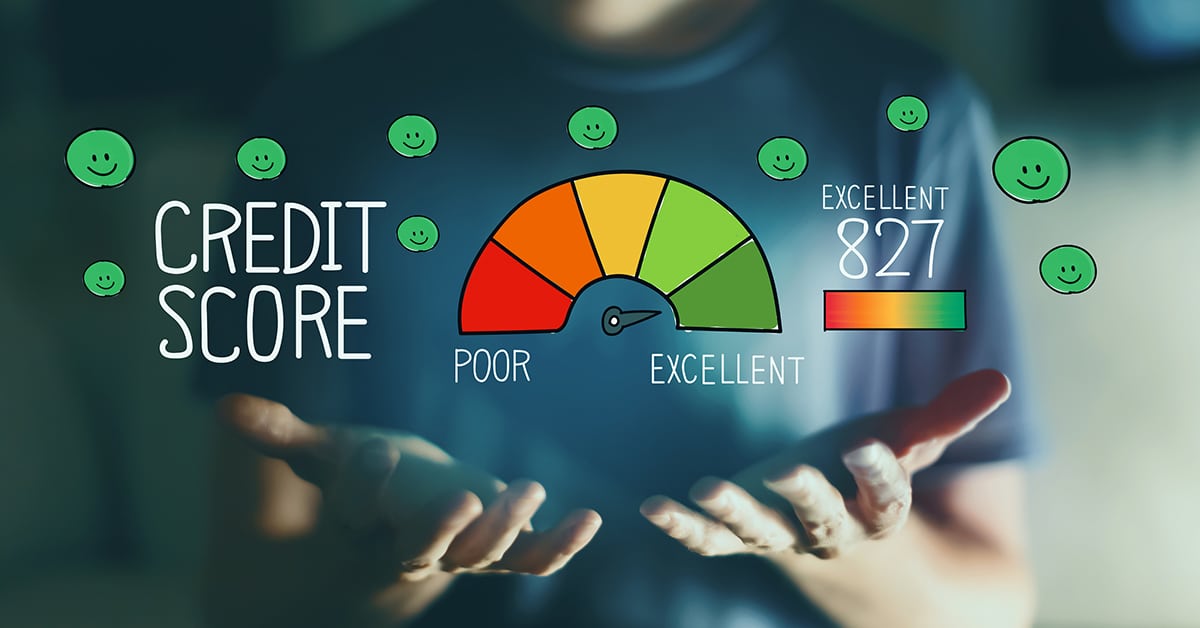

Finance
What Credit Score Is Needed For Student Loans
Published: October 23, 2023
Find out what credit score you need to qualify for student loans and secure your financial future with the right financing options
(Many of the links in this article redirect to a specific reviewed product. Your purchase of these products through affiliate links helps to generate commission for LiveWell, at no extra cost. Learn more)
Table of Contents
Introduction
When it comes to pursuing higher education, many students rely on student loans to finance their studies. Whether you’re planning to attend college or embark on a graduate program, understanding the credit score requirements for student loans is crucial. Your credit score plays a significant role in determining your eligibility for both federal and private student loans.
So, what exactly is a credit score? Simply put, it is a numerical representation of your overall creditworthiness. Lenders use this score to assess the risk of loaning money to individuals. A higher credit score indicates a higher level of trustworthiness and reliability, making it easier for borrowers to secure loans at favorable interest rates.
There are various types of student loans available, including federal student loans and private student loans. Each has its own set of requirements, including credit score thresholds that borrowers need to meet. Understanding these requirements can help you plan and prepare for your higher education journey.
In this article, we will explore the credit score requirements for both federal and private student loans. Additionally, we will provide tips on how to improve your credit score to increase your chances of qualifying for student loans. By the end of this article, you will have a clear understanding of what credit score is needed for student loans and how you can work towards achieving it.
Understanding Credit Scores
Before delving into the credit score requirements for student loans, it’s important to have a basic understanding of how credit scores are calculated and what factors influence them.
Credit scores typically range from 300 to 850 and are determined by credit reporting agencies, such as Equifax, Experian, and TransUnion. These scores are based on various factors that indicate your creditworthiness.
The primary components that contribute to your credit score include:
- Payment history: This accounts for the largest portion of your credit score. It reflects whether you have made your payments on time and if you have any past delinquencies or defaults.
- Credit utilization: This refers to the amount of credit you are currently using compared to your total available credit limit. It’s recommended to keep your credit utilization below 30% to maintain a good credit score.
- Length of credit history: The longer your credit history, the more information lenders have to assess your creditworthiness. This factor takes into account the age of your oldest and newest accounts, as well as the average age of all your accounts.
- Credit mix: Having a mix of different types of credit, such as credit cards, student loans, and mortgages, can positively impact your credit score.
- New credit: Opening multiple new credit accounts within a short period of time can negatively impact your credit score as it may be seen as a sign of financial instability.
It’s important to note that credit scores can vary slightly depending on the credit scoring model used. The most commonly used scoring model is the FICO score, while the VantageScore is gaining popularity.
Now that you have a basic understanding of credit scores, let’s explore the credit score requirements for federal and private student loans to better grasp what credit score is needed for student loans.
Types of Student Loans
Before diving into the credit score requirements, it’s important to understand the different types of student loans available. There are two main types: federal student loans and private student loans.
1. Federal Student Loans:
Federal student loans are provided by the U.S. Department of Education. These loans offer several benefits, including lower interest rates, flexible repayment options, and potential loan forgiveness programs. The credit score requirements for federal student loans are generally more lenient compared to private loans, making them accessible to a wider range of students.
There are several types of federal student loans:
- Direct Subsidized Loans: These loans are available to undergraduate students with demonstrated financial need. The interest on these loans is subsidized by the government while the student is in school.
- Direct Unsubsidized Loans: These loans are available to both undergraduate and graduate students, regardless of financial need. Unlike subsidized loans, interest accrues on unsubsidized loans while the student is in school.
- PLUS Loans: Parent PLUS Loans are available to parents of dependent undergraduate students, and Grad PLUS Loans are available to graduate and professional students. These loans require a credit check, but the credit score requirements are not as strict as those for private loans.
2. Private Student Loans:
Private student loans are offered by banks, credit unions, and other private lenders. Unlike federal loans, private loans have stricter credit score requirements and vary from lender to lender. Private loans generally have higher interest rates but can be a viable option for students who do not qualify for sufficient federal aid or need additional funds to cover educational expenses.
When applying for private student loans, lenders may also consider other factors such as income, employment history, and cosigner availability. Having a higher credit score increases your chances of qualifying for private loans and securing better interest rates.
Now that you are familiar with the types of student loans, let’s explore the specific credit score requirements for federal and private student loans in the following sections.
Credit Score Requirements for Federal Student Loans
When it comes to federal student loans, credit scores are not typically a determining factor for eligibility. Most federal student loans, such as Direct Subsidized Loans and Direct Unsubsidized Loans, do not require a credit check. This means that even if you have a low credit score or no credit history at all, you can still qualify for these loans.
However, there is one exception: PLUS Loans. Parent PLUS Loans and Grad PLUS Loans do require a credit check. While there are no specific credit score requirements, these loans do take into account your credit history. If you have adverse credit history, such as recent bankruptcies, tax liens, or defaults on previous loans, you may be denied a PLUS Loan. In such cases, you may still be eligible for a PLUS Loan by obtaining a credit-worthy endorser or by documenting extenuating circumstances.
The primary purpose of the credit check for PLUS Loans is to ensure that borrowers have a responsible credit history and are not likely to default on their loans. If you’re a parent or graduate student with a less-than-perfect credit score, it’s recommended to explore your options with a credit-worthy cosigner.
It’s important to note that federal student loans offer various repayment plans, such as income-driven repayment and loan forgiveness programs, that can make them more manageable regardless of credit score. These options are designed to assist borrowers in repaying their loans based on their current income and financial situation.
Now that you understand the credit score requirements for federal student loans, let’s move on to the credit score requirements for private student loans.
Credit Score Requirements for Private Student Loans
Unlike federal student loans, private student loans are issued by banks, credit unions, and other private lenders. These loans often have stricter credit score requirements and eligibility criteria.
The specific credit score requirements for private student loans can vary depending on the lender. Generally, lenders prefer borrowers with higher credit scores as it signifies a lower risk of defaulting on the loan. A good credit score is typically considered to be around 670 or higher on the FICO scale. However, some lenders may have more lenient requirements, accepting scores in the fair range (580-669).
In addition to credit scores, private lenders may also consider other factors such as income, employment history, and debt-to-income ratio. These factors help lenders assess the borrower’s ability to repay the loan.
If you have a lower credit score or do not meet the credit score requirements for private student loans, there are a few options to consider:
- Apply with a cosigner: Having a creditworthy cosigner, such as a parent or a guardian, can increase your chances of approval and potentially help secure a lower interest rate. Keep in mind that the cosigner is equally responsible for repaying the loan if the borrower fails to do so.
- Improve your credit score: Take steps to improve your credit score before applying for a private student loan. This can include making timely payments on existing debts, reducing credit card balances, and addressing any errors on your credit report.
- Research alternative lenders: Some lenders specialize in working with borrowers who have less-than-perfect credit scores or offer loan options that do not heavily rely on credit scores. Researching and comparing different lenders can help you find more flexible options that suit your needs.
It’s important to be realistic about your options and carefully consider the terms and conditions of any private student loan you’re considering. Make sure you fully understand the interest rates, repayment terms, and any fees associated with the loan before committing.
Now that you know the credit score requirements for private student loans and some strategies to work around them, let’s explore how you can improve your credit score to increase your chances of qualifying for student loans.
How to Improve Your Credit Score for Student Loans
If your credit score is not currently meeting the requirements for student loans, don’t worry. There are steps you can take to improve your credit score and increase your chances of qualifying for better loan options. Here are some strategies to consider:
- Paying bills on time: Make timely payments on all your bills, including credit card payments, student loan payments, and utility bills. Late payments can negatively impact your credit score, so it’s important to prioritize payment deadlines.
- Reducing credit card balances: High credit card balances can negatively impact your credit utilization ratio. Aim to keep your balances below 30% of your available credit limit on each card.
- Building a positive credit history: If you have limited credit history, consider applying for a secured credit card or becoming an authorized user on someone else’s credit card. Responsible use of credit can help establish a positive credit history over time.
- Checking your credit report: Regularly review your credit report to ensure there are no errors or discrepancies that could be dragging down your credit score. If you find any inaccuracies, dispute them with the credit bureaus to have them corrected.
- Avoiding excessive credit applications: Each time you apply for credit, it results in a hard inquiry on your credit report, which can temporarily lower your credit score. Only apply for credit when necessary and research potential lenders to minimize the number of applications.
- Seeking professional guidance: If you are struggling to improve your credit score on your own, consider seeking assistance from a credit counseling agency or a financial advisor. They can provide personalized guidance and help you develop a plan to improve your creditworthiness.
Remember, improving your credit score takes time and requires consistent effort. It’s important to be patient and committed to implementing responsible credit habits. By doing so, not only will you increase your chances of qualifying for student loans, but you will also set yourself up for a healthier financial future.
Now that you have a better understanding of how to improve your credit score, let’s wrap up our discussion on credit score requirements for student loans.
Conclusion
Securing student loans to fund your education is a common practice for many students. Whether you’re considering federal student loans or private student loans, understanding the credit score requirements is crucial. While federal student loans generally do not have strict credit score requirements, private student loans often require a higher credit score for eligibility.
If you find that your credit score does not meet the requirements, don’t panic. There are steps you can take to improve your creditworthiness. Paying your bills on time, reducing credit card balances, and building a positive credit history are effective strategies for boosting your credit score.
It’s important to explore all available options and research different lenders to find the best loan options for your situation. Considering a cosigner, researching alternative lenders, and comparing loan terms and interest rates can help you find a loan that suits your needs and financial circumstances.
Remember, student loans are a significant financial responsibility, and it’s essential to borrow responsibly. Only borrow what is necessary and carefully consider your repayment plan. Taking proactive steps to improve your credit score not only increases your chances of qualifying for student loans but also sets you on a path to better financial health in the long run.
As you embark on your educational journey, keep in mind that your credit score is not the only factor that lenders consider. Other factors such as income, employment history, and debt-to-income ratio also come into play. It’s essential to develop good financial habits and maintain a responsible approach to credit throughout your academic and professional life.
By understanding credit score requirements, continuously working towards improving your creditworthiness, and making informed decisions about student loans, you can navigate the financing process more confidently and set yourself up for success in your educational pursuits.














